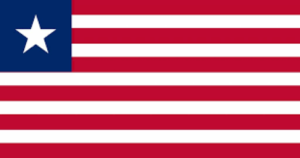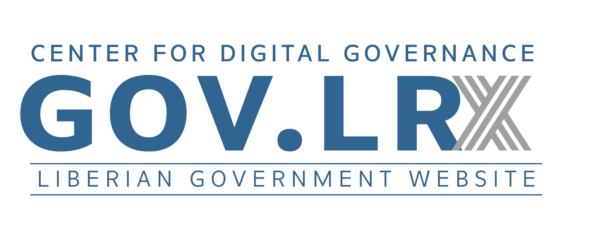Home > Frequently Asked Questions
FAQs
Commonly asked questions regarding complaint handling, response timelines, and resolutions.
Using our service
The Office of the Ombudsman is an independent body created under Liberia’s 2014 Code of Conduct to promote integrity, transparency, and accountability among public officials and employees. Its primary mission is to enforce ethical standards across government institutions by investigating misconduct, monitoring adherence to the Code of Conduct, and fostering ethical behaviour within Liberia’s public sector.
The Office’s mission is to uphold integrity and accountability in Liberia’s public service. It addresses complaints impartially, enforces the Code of Conduct, and aims to strengthen public trust by promoting ethical behaviour and ensuring that public officials are held accountable for their actions.
The Office handles complaints related to violations of Liberia’s Code of Conduct by public officials, including issues like conflicts of interest, abuse of power, corruption, unethical behaviour, and failure to adhere to public service standards. The Office does not handle private disputes or cases unrelated to the conduct of public officials.
Any Liberian citizen, public official, or employee can file a complaint if they believe there has been a violation of the Code of Conduct. Complaints can be submitted in person at the headquarters in Monrovia or through local offices in Liberia’s 15 counties. An online portal and a toll-free hotline will soon be available to make the complaint process more accessible.
Yes, anonymous complaints are accepted. The Office also respects the confidentiality of all individuals who report misconduct. Whistleblower protections are in place to safeguard the identities and safety of those who submit information regarding Code violations.
After receiving a complaint, the Office acknowledges it within two business days and conducts an initial assessment to determine if it falls within its jurisdiction. If it does, an investigation is launched, involving evidence gathering, witness interviews, and, if necessary, collaboration with other government bodies such as the Liberia Anti-Corruption Commission (LACC). The investigation process is designed to be thorough, impartial, and confidential.
If a violation is confirmed, the Office may recommend corrective measures or sanctions, including suspension, dismissal, or referral to other government agencies for further action. If the complaint does not fall within the Office’s jurisdiction, it may be referred to the appropriate agency for further handling.
Yes, the Ombudsman has jurisdiction over all public officials and employees across Liberia’s executive, legislative, and judicial branches, as stipulated in the Code of Conduct. However, certain high-ranking officials may only be removed through impeachment, limiting some disciplinary actions.
The Office strengthens good governance by holding public officials accountable, enforcing the Code of Conduct, and ensuring transparency. It encourages ethical standards within government institutions, ultimately fostering public trust and promoting a culture of accountability in Liberia.
When a case warrants a hearing, the Office notifies all involved parties. A hearing panel reviews the evidence, listens to witness testimonies, and allows both parties to present their cases. Both sides may have legal representation, and the hearings are conducted fairly and transparently to uphold justice.
Yes, parties may appeal a decision within ten working days if they disagree with the outcome. Appeals are reviewed by the Ombudspersons sitting en banc (as a full panel), and, in special cases, an external authority may assist in the appeal process. Appeals are typically resolved within 30 days.
Confidentiality is critical to the Office’s operations. All complaint details, investigations, and hearing records are kept confidential to protect the privacy of the individuals involved and to uphold the integrity of the investigation process.
The Office operates on principles of fairness, transparency, timeliness, and accessibility. Decisions are made impartially, based on evidence and in accordance with Liberian law, ensuring that all processes are conducted with integrity.
The Office receives funding from the national budget and through partnerships with international organizations. Additional financial support is sought to ensure the Office has the necessary resources to effectively fulfill its mandate, support staff, and conduct outreach.
You can visit the headquarters in Monrovia or any of the planned local offices across Liberia’s counties (once operational). Soon, complaints can also be submitted online or through a toll-free hotline to improve access for citizens across Liberia.
The Office is establishing local offices in Liberia’s political subdivisions to reach citizens outside of Monrovia. Additionally, an online complaint portal and a toll-free hotline are in development to make it easier for citizens to report misconduct from any part of the country.
The Office engages in community outreach, partners with civil society organizations, and utilizes media to educate citizens on ethical governance and the importance of public accountability. Public forums and radio programs are part of ongoing efforts to raise awareness and inform citizens about their rights and the complaint process.
Under President Joseph Nyuma Boakai’s leadership, the Office has made significant strides, including establishing its organizational structure, securing partnerships with international bodies, conducting public awareness campaigns, and investigating high-profile cases. The Office is now positioned as a critical institution in Liberia’s governance reform.
Sanctions for confirmed Code violations may include suspension, dismissal, and, in severe cases, referral to other government agencies (Ministry of Justice, LACC) for further prosecution. The Office ensures that all disciplinary measures align with the nature and severity of the offence.
If you disagree with a decision, you have the right to appeal within the specified period, usually ten days. Appeals are handled by the Ombudsman’s panel, and, if necessary, may involve external oversight to ensure fairness and transparency.
The Office follows rigorous processes to ensure fairness, including impartial investigations, transparency in hearings, and adherence to due process. Decisions are based solely on evidence and are made by a panel of ombudspersons who maintain high standards of integrity and professionalism.


